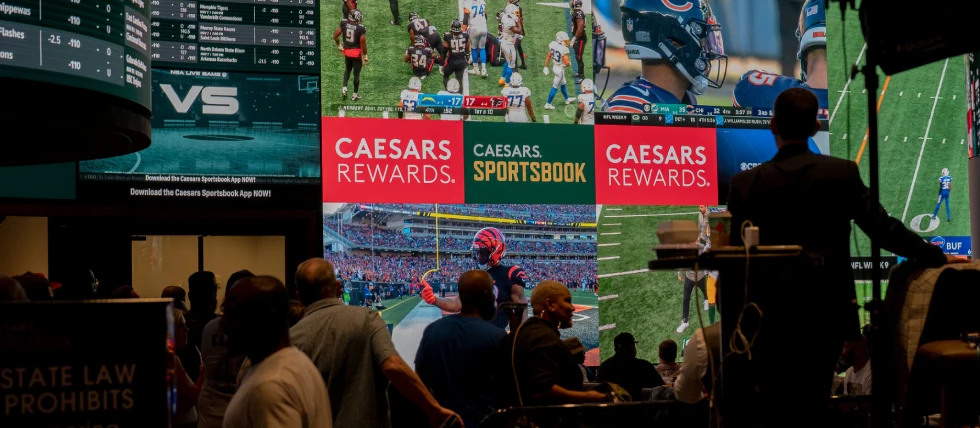Massachusetts Considers New Gambling Law Reforms
Massachusetts legislators are considering revisions to the state’s sports betting laws through a new proposal introduced by State Senator John Keenan.

People watching American football in a sports bar. Massachusetts proposes changes to sports betting laws.
The bill, SD 1567, builds on existing player protection measures by focusing on responsible gambling practices, raising tax rates on betting operators, and imposing stricter limits on advertising and certain betting activities.
If passed, Senator John Keenan’s SD 1567 bill could position Massachusetts as a national leader in player protection within the regulated sports betting industry. The bill has received backing from the Public Health Advocacy Institute, an organization that has also championed the SAFE Bet Act at the federal level. However, critics warn that overly stringent regulations could hamper the state’s burgeoning sports betting market.
Daily and Monthly Betting Caps
Key provisions include introducing daily and monthly betting caps of $1,000 and $10,000, respectively. Bettors wishing to exceed these limits would need to undergo affordability checks, restricting bets to no more than 15% of their bank account balance. This mirrors measures recently adopted in the UK, which have sparked debates about privacy and the balance between gambling regulation and personal responsibility.
The bill also proposes increasing the tax rate on operator revenues to 51%, tying Massachusetts with New York for the highest rate in the nation. Currently, retail operators pay a 15% tax, while mobile operators are taxed at 20%. While the higher tax could generate significant state revenue, industry representatives fear it may drive some operators out of the regulated market.
More Regulation News
Ban on In-Game and Prop Bets
Another major component of the bill is the prohibition of in-game wagering, prop bets, same-game parlays, bonuses, and odds boosts. These practices have been flagged for their potential to mislead consumers and contribute to gambling harm. Additionally, sports betting advertisements during live games would be banned, aiming to reduce exposure among vulnerable populations, including young audiences.
To further promote responsible gambling, SD 1567 mandates that operators collect anonymized player data to monitor gambling behaviors. This data will be shared with a nonprofit research organization tasked with studying addiction and developing strategies to reduce gambling harm. Researchers will use this information to create intervention systems for high-risk gambling patterns.
Balancing Innovation and Regulation
The Massachusetts Gaming Commission has expressed support for advancing consumer protection while considering stakeholder interests. Previously, the regulator explored betting limitations and even the idea of allowing betting kiosks in bars and restaurants. However, the heightened restrictions and tax rates proposed in SD 1567 may face resistance from industry stakeholders concerned about the financial and operational challenges these changes could introduce.
RELATED TOPICS: Regulation
Most Read
Must Read
 Interviews
Interviews
Sweepstakes Casinos: Thriving in an Ever-Changing Industry – Interview with Attorney Stephen C. Piepgrass
Feb 17, 2025 Interviews
Interviews






Review this New Post
Leave a Comment
User Comments
Comments for Massachusetts Considers New Gambling Law Reforms